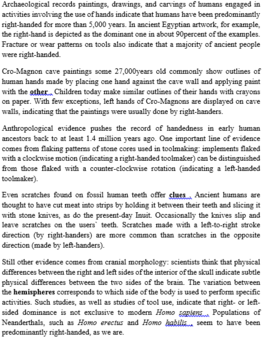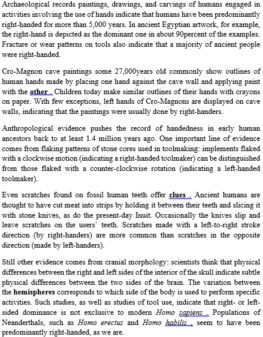Read the following passage and mark the letter A, B, C or D to indicate the correct answer to each of the questions from 36 to 42.
It is commonly believed in the United States that school is where people go to get an education. Nevertheless, it has been said that today children interrupt their education to go to school. The distinction between schooling and education implied by this remark is important.
Education is much more open-ended and all-inclusive than schooling. Education knows no bounds. It can take place anywhere, whether in the shower or on the job, whether in a kitchen or on a tractor. It includes both the formal learning that takes place in schools and the whole universe of informal learning. The agents of education can range from a revered grandparent to the people debating politics on the radio, from a child to a distinguished scientist. Whereas schooling has a certain predictability, education quite often produces surprises. A chance conversation with a stranger may lead a person to discover how little is known of other religions. People are engaged in education from infancy on. Education, then, is a very broad, inclusive term. It is a lifelong process, a process that starts long before the start of school and one that should be an integral part of one's entire life.
Schooling, on the other hand, is a specific, formalized process, whose general pattern varies little from one setting to the next. Throughout a country, children arrive at school at approximately the same time, take assigned seats, are taught by an adult, use similar textbooks, do homework, take exams, and so on. The slices of reality that are to be learned, whether they are the alphabet or an understanding of the workings of government, have usually been limited by the boundaries of the subject being taught. For example, high school students know that they are not likely to find out in their classes the truth about political problems in their communities or what the newest filmmakers are experimenting with. There are definite conditions surrounding the formalized process of schooling.
Question 40: From the passage, we can infer that a high school teacher
A. is free to choose anything to teach
B. is bound to teach programmed subjects
C. is not allowed to teach political issues
D. has to teach social issues to all classes





Đáp án B
Dịch bài: Từ bài viết, chúng ta có thể suy ra rằng một giáo viên trường trung học _________.
A. là tự do lựa chọn bất cứ điều gì muốn dạy
B. bắt buộc phải dạy các môn học theo chương trình
C. không được phép giảng dạy các vấn để chính trị
D. phải dạy các vấn đề xã hội cho tất cả các lớp học
Giải thích: Thông tin ở: “Schooling, on the other hand, is a specific, formalized process, whose general pattern varies little from one setting to the next”